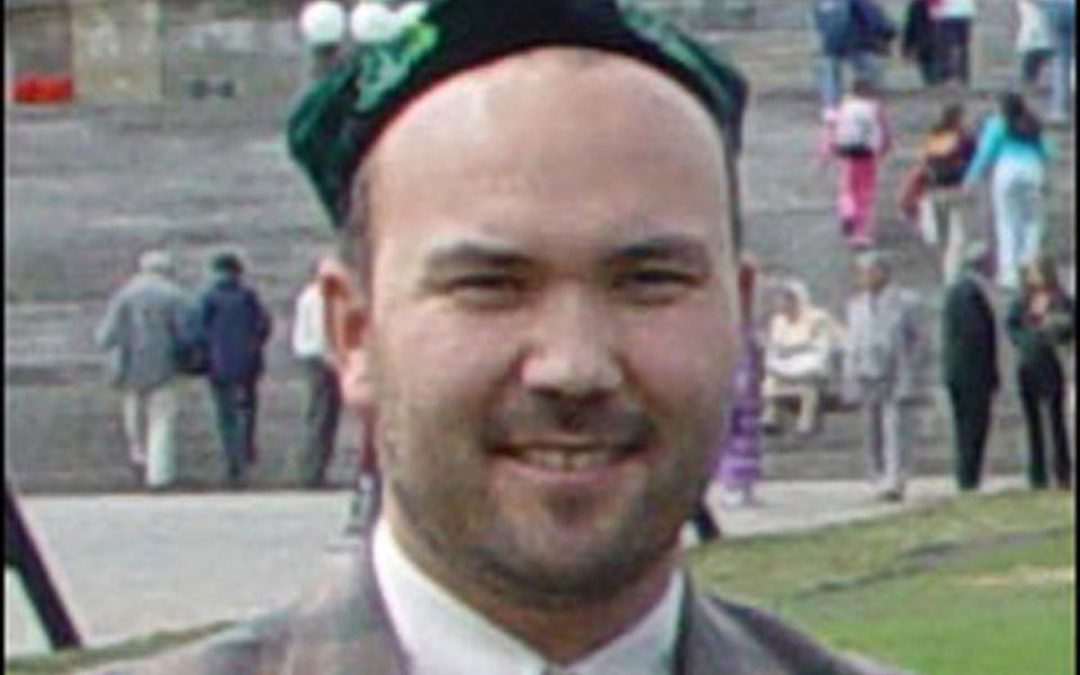In Syria, for example, about 45 Canadian citizens have been languishing in detention camps for months in the northeast. Our government’s response to what can properly be seen as a humanitarian emergency has been lacklustre.

What do northeast Syria, novel coronavirus, and Canadian detainees in China have to do with one another? They are all examples of policy incoherence when it comes to the provision of consular support for Canadians abroad.
Although Huseyin Celil has been in detention in China since 2006, his case was recently thrust into the limelight when Conservative MP Garnett Genuis questioned Canada’s ambassador to China, Dominic Barton, about actions taken on Celil’s case during a House of Commons committee meeting.
The ambassador, who first appeared to be unfamiliar with the case, responded by stating that “because [Celil] is not a Canadian citizenship holder, we are not able to get access to him on the consular service side.” This is, of course, not true. Celil is a Canadian citizen; while China does not recognize dual citizenship, all that matters from a Canadian consular perspective is that he is Canadian. The hyphen in his citizenship status is meaningless, or at least it ought to be, when it comes to receiving consular support. It ought to be equivalent to the robust efforts that the government insists it is providing to other Canadians in detentions in China, such as Michael Kovrig and Michael Spavor. But Ambassador Barton’s remarks cast significant doubt on that proposition.
Sticking with China, when it comes to novel coronavirus, we have seen the government arrange consular support and even the evacuation of Canadians from Wuhan in recent days. Reports indicate that not only Canadian citizens, but also a handful of permanent residents and Chinese nationals, were permitted to board the government-chartered flights. The process has not been without turbulence: some Canadians had to wait for a second flight, and questions were raised about the speed of Canada’s response in comparison to that of other countries.
Not insignificantly, Canada managed to make arrangements (to get Canadians out of Wuhan) in the midst of frosty relations between Ottawa and Beijing.
Nevertheless, it appears the government was able to facilitate a managed return of Canadian citizens while putting the appropriate public safety measures in place, including a quarantine of returnees at the Canadian Forces Base in Trenton, Ontario. Not insignificantly, Canada managed to make these arrangements in the midst of frosty relations between Ottawa and Beijing, and it took only a matter of weeks to arrange. Two Canadian emergency consular teams were also deployed to Wuhan to provide consular services to Canadians who will have opted to remain.
Compare this to the situation in Syria, where about 45 Canadian citizens have been languishing in detention camps for months in the northeast part of that country, in conditions which cannot be qualified as anything short of a humanitarian emergency. None appears to have been charged with an offence, and yet they are subject to serious human rights abuses on a daily basis: Arbitrary detention, threats to physical security, and a lack of access to medicine, food, and water are just some of the challenges they face. Particularly disturbing is the situation of children who, by no choice of their own, are left to suffer due to the failure of the Canadian government to put an end to their plight. Indeed, last week the uncle of a four-year-old orphaned girl travelled to Syria himself, driven to desperation by the inability or unwillingness of Canadian officials to assist him in bringing his niece to Canada.
The government insists that it cannot help Canadians in Syria because it does not have a diplomatic presence in the country, and because it is too dangerous for consular officials to travel to the areas in which they are being held. Of course, Canada does have a consulate in nearby Erbil, and the absence of a Canadian consulate in Wuhan did not stop the government from arranging evacuation flights out of that city and the deployment of emergency consular teams.
Many other countries – such as France, the Netherlands and United States – have arranged for some citizens to be evacuated, so what is actually stopping Canada from assisting Canadian citizens who are stuck in Syria? To be sure, the logistics and security concerns of the China and Syria situations are different, but experiences like the China evacuation (and others, like the Lebanon evacuation in 2006) illustrate that when Canada wants to evacuate its citizens, it finds a way.
The uneven approach in the delivery of consular services leads to the question: Are some Canadians more Canadian than others, or do we uphold the full equality of citizenship in Canada? Rhetorically, it’s clear that we do. Rising in the House of Commons to ask that Ambassador Barton be corrected with respect to Celil’s citizenship, MP Genuis said, “a Canadian is a Canadian.” Not to be out done, Foreign Affairs Minister François-Philippe Champagne responded by borrowing from Prime Minister Justin Trudeau’s quip that “a Canadian is a Canadian is a Canadian.” As it would appear that we have achieved bipartisan consensus, it’s time to make sure that all Canadians receive the same level of consular services wherever they may go.
Justin Mohammed is Amnesty International Canada’s Human Rights and Law Policy Campaigner.
Original Link: ottawacitizen.com/opinion/columnists/mohammed-consular-help-is-woefully-uneven-for-canadians-in-distress-abroad


Recent Comments